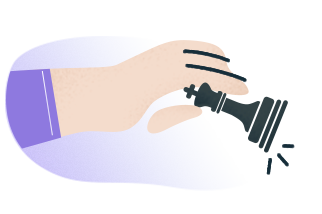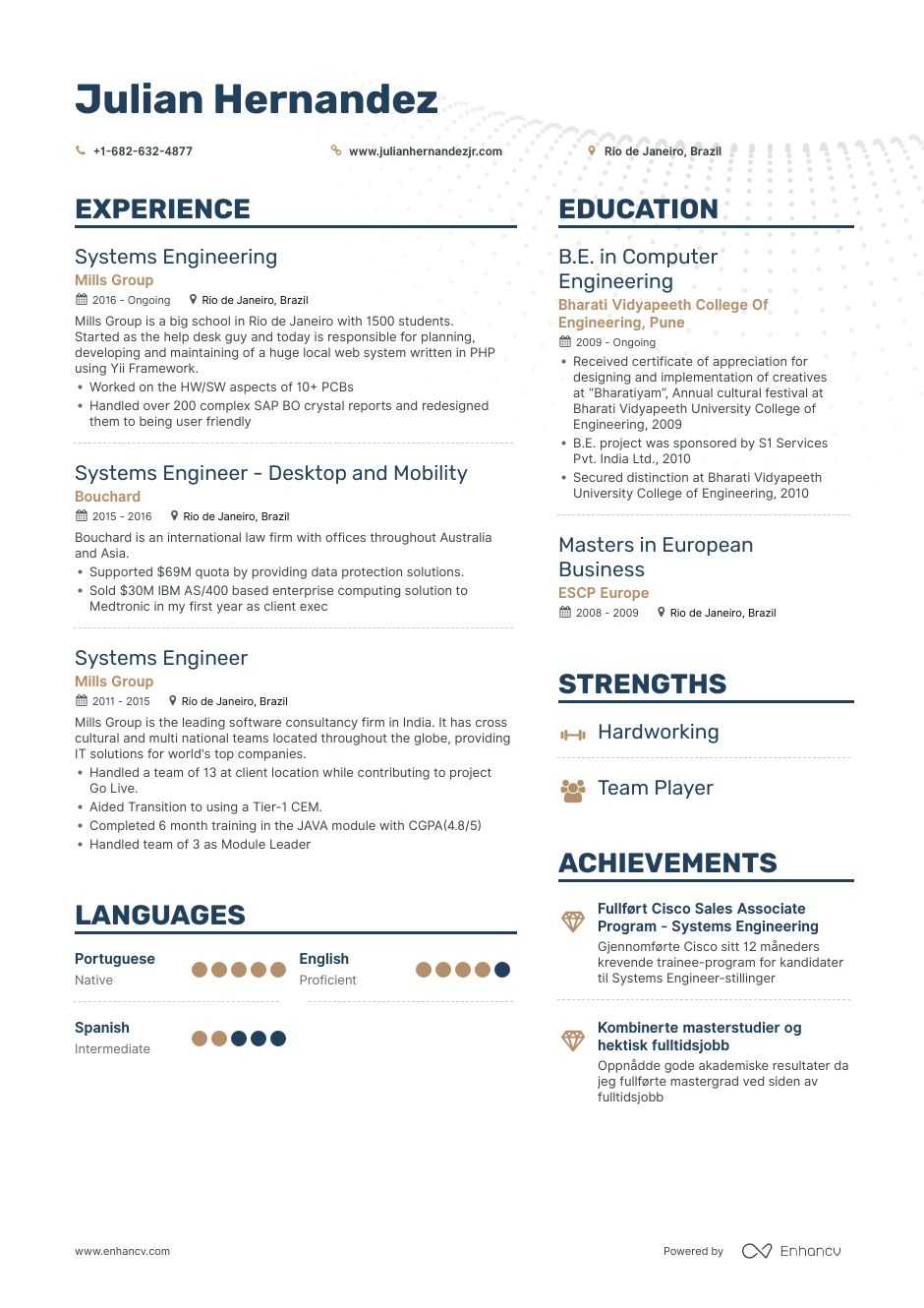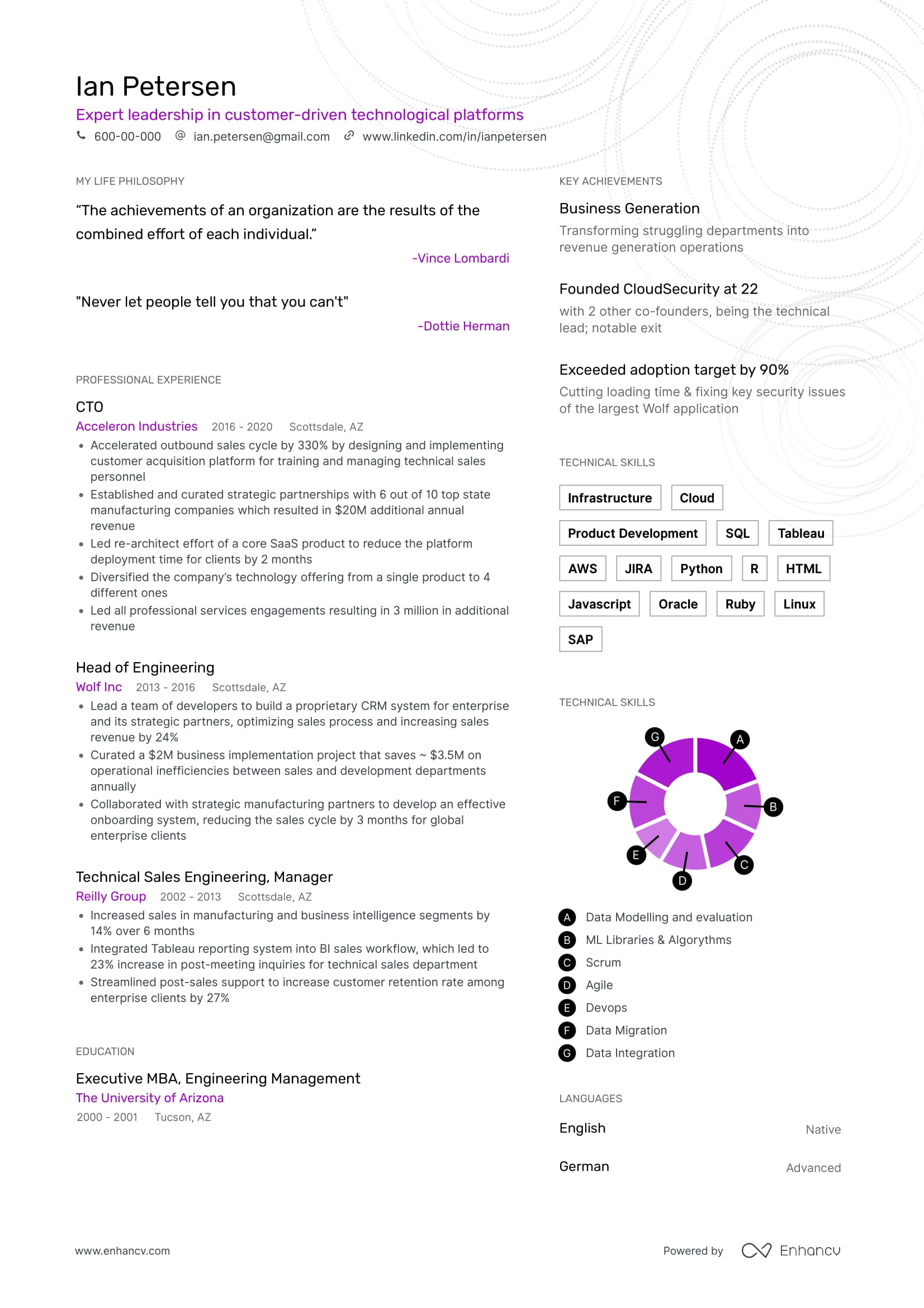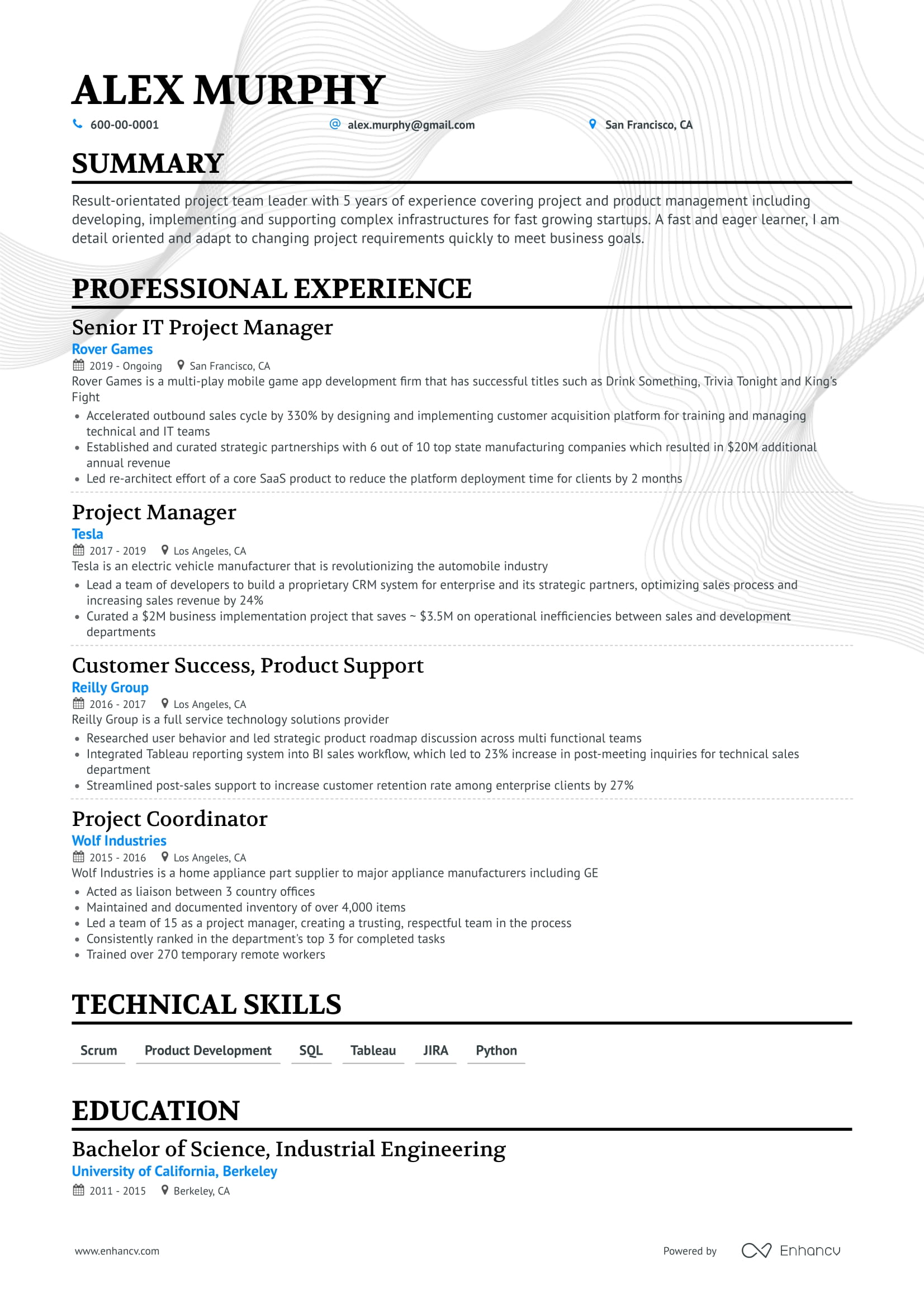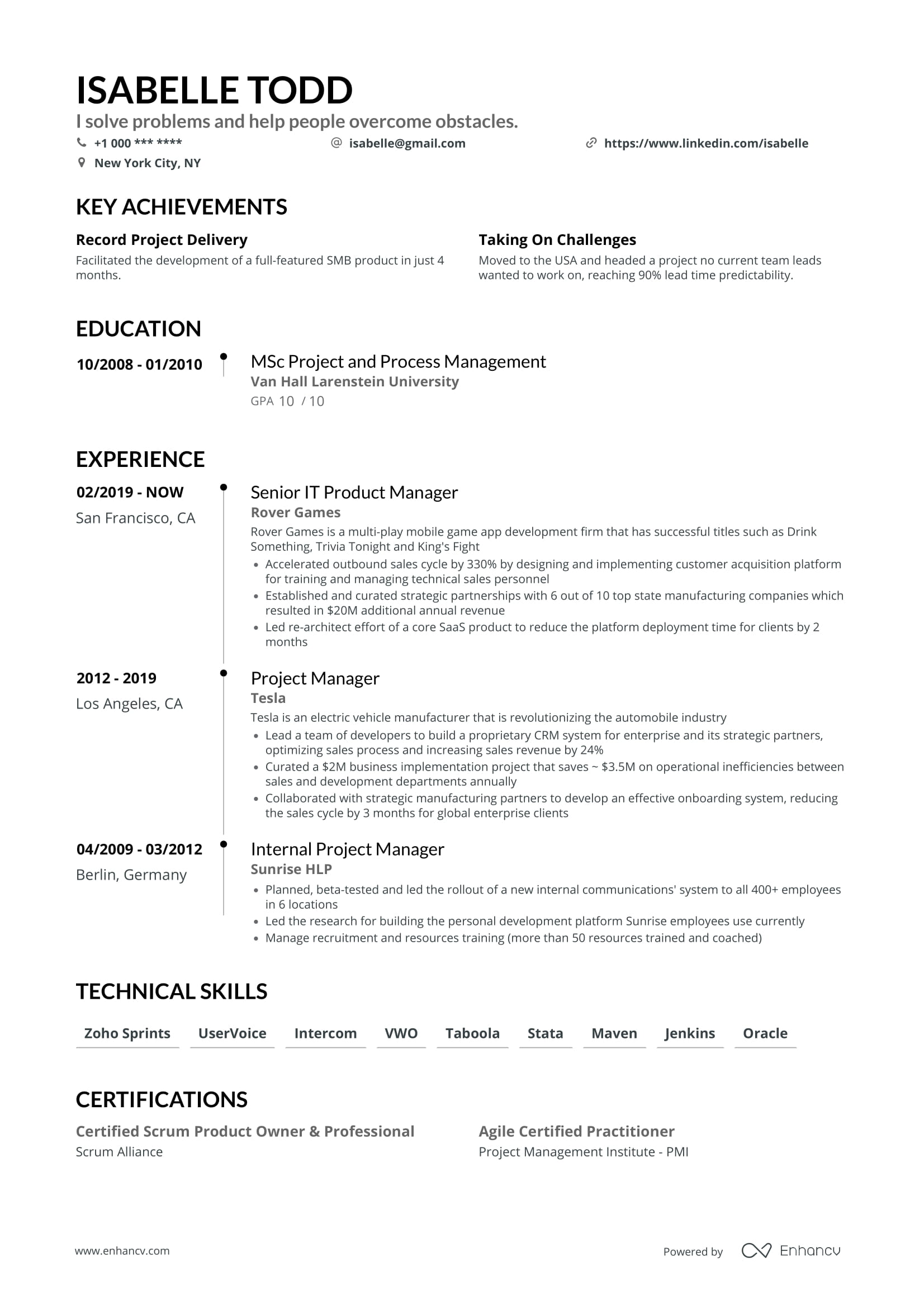Example Systems Engineer Resume - Browse more resume templates and build a stand-out resume
Writing your System Engineer resume?
You’re at the right place.
We are going to perform root-cause analysis on your resume.
We will exactly show and isolate events that cause resume rejections.
And then, you will learn how to apply Systems thinking to your resume.
After all, solving system level challenges isn't a joke.
Most systems around us are now complex. On top of that, they've transformed into safety critical systems.
And, when Business and Human safety is at stake, no one will take your resume lightly.
In this guide, you’ll learn:
- 4 good systems engineer resume examples that got real candidates hired
- How to add your skills and certifications to your resume
- The right way to position your experience and achievements on your resume
- High-impact engineering verbs and buzzwords to get your resume seen (boolean search)
Looking for related systems engineer resumes?
- Entry-Level Systems Engineer
- Senior Systems Engineer
Systems Engineer Resume Sample
Want to write a systems engineer resume like these?
Let’s get started!
How to write a brilliant System Engineers resume
Most systems, products and process you are going to work with - are failure prone by nature.
Enterprises have evolved into a complex systems powered by backups and safety systems.
So, when they are going to bring in a new System Engineers, they'd want someone who:
1. Can navigate and understand all the complexities of the system
2. You've got the capacity to gather system information and integrate findings
3. You've the required technical understanding of the Engineering field
And, this is exactly what your System Engineer resume is supposed to show.
Instead, Hiring managers end up seeing:
Entry level systems engineer resumes without skills used to build systems together. And, projects that don't reflect relevant, real-life applications.
Senior System Engineers resumes on the other hand, are often just a list of technologies. And, with no mention of business impact of their work.
From this alone, you can tell that your resume must be formatted appropriately to match your experience and skills directly to the job you’re applying for.
4 formats for a Systems Engineer resume:
- Functional layout
- Reverse chronological layout
- Hybrid layout
- Creative resume layout
Do you have a good amount of systems engineering work experience to display?
Then the reverse chronological layout would be your best bet.
If you're an entry-level systems engineer, a hybrid resume layout tends to perform well. You canread more about them here.
For all that is good in the world, avoid using functional and creative resume layouts.
Most engineering recruiters aren’t receptive to them. As its difficult to find the sweet spot between useful information and flashy design.
What sections do we recommend you include on your Systems Engineer resume?
- Career Summary or objective
- Experience
- Skills
- Education & Certifications
- Keep to a maximum of 10 years work experience per page on your resume
How to Write a Systems Engineer Resume Summary
To write the best resume summary, look at the System Engineer job description.
It's easy to notice the following from a job ad:
1. Industry related requirements
2. Technology related requirements
3. Technical Skills(LabView, SolidWorks, etc)
4. Years of experience
Now, your only goal with a resume summary is to impactfully write it using these 4 points. Check out these two examples below:
2 Sample Systems Engineer Resume Summaries
You can't convince anyone with those words. Not when you're applying to be a System Engineer.
Also, this is exactly the type of boilerplate summary that every other resume would have. It won't help you stand out!
Here's one that would score better with hiring managers.
Don’t let your lack of experience prevent you from writing a great resume summary.
How to Write the Experience Section of Your Systems Engineer Resume
Your resume could be as long as the number of lines you wrote for your latest deployed application.
But nobody will read that.
Instead, aim to include the following in your Systems Engineer resume:
- Aim to include up to 10 years worth of work experience per page
- Describe which technologies and frameworks you used (V2X, Linux)
- Highlight the business impact generated as a result of your work
- Any servers, systems or applications you built and deployed (drivers, multi-threaded applications, testing frameworks etc)
2 Entry Level System Engineer Resume Examples - Experience
Imagine you’ve just applied for a senior Systems Engineer position at Webflow, and your resume landed on Greg’s (fictional) (Head of Product Management & CTO) desk.
If Greg reads this, he’ll know you improved system tests and worked extensively with customers.
But he can’t gauge the scope or impact of your work. Which is what distinguishes you from other candidates.
This is a much better experience section for the following reasons:
- You explained what you did
- Who you did it for
- And the scope/impact of the work performed
Being as specific as possible on your resume will help recruiters make a decision faster and in your favour.
Entry Level System Engineer Resume Samples - Experience
This is a very poor way to list your experience.
It’s clear that you’re an intern who’s built some cool stuff.
But from a recruiter’s perspective it's too vague to warrant an interview.
This is a much more effective way to showcase your expertise.
How about if the job you’re applying for requires a wealth of experience? Such as an embedded or senior systems engineer role?
In this case, we recommend more engineering skills within a separate section on your resume.
Skills to include on your Systems Engineer resume
As a Systems Engineer, you know that no two jobs are the same.
Therefore the skills to include on your resume must reflect the following:
- Your capability to perform the job
- Match the job description
After all, Engineering hiring managers will read your resume wondering:
“Will this person have an impact on our organisation or will we have to teach them?”
With that in mind, here’s some skills to mention on your Systems Engineer resume.
Soft Skills to Include on Your Systems Engineer Resume
- Troubleshooting and problem-solving
- Disciplined; able to follow strict procedures
- Flexible; able to work on-call if necessary
- Adaptable; can change goals as customers and market’s needs change
- Communication; needed to build healthy relationships with relevant stakeholders
8 Technical Skills and Software Competencies to Mention on Your Systems Engineer Resume
- Agile Methodologies
- Linux System Administration
- Software Development
- Enterprise Architecture
- MS SQL
- Relational Database Management
- Servers
- Unix
Once you’ve added your relevant skills, re-read your resume for prose and ensure you add the right buzzwords and verbs, so your resume gets found.
Here’s why.
Do You Need An Education Section on Your Systems Engineer Resume?
Most candidates leave the education section on their systems engineering resume as an afterthought. After all, employers don’t care where you went to school, right?
Not exactly.
Whilst it’s true that the more industry experience you have, the less relevant your education becomes.
If you’re a recent graduate looking for an entry-level systems engineering position, then how you display your education is more important than ever.
Note how this candidate included the achievements and awards they received during university. This is much more attractive to employers.
Especially if you’re an entry-level systems engineer with little work experience.
Finally, you should supplement your education with relevant engineering certifications.
If you’ve obtained or are working towards the MCSE or INCOSE ASEP, it will put you in a recruiter’s good books.
Systems Engineer Certifications to Include on Your Resume
- INCOSE ASEP / CSEP / ESEP
- Microsoft Certified Systems Engineer (MCSE)
- Net+
- CCNA/CCENT
- VCP
To summarise, what makes a good Systems Engineer resume?
It’s time to put your new resume into action; to summarise:
- Start with a reverse-chronological or hybrid resume format
- Include the right verbs, buzzwords and keywords in your resume, so it shows up to recruiters when they use Boolean search
- Show off your interpersonal skills through your experience rather than just saying it. E.g. Keeping key stakeholders up to date on progress and blockers shows that you have good communication skills.
- Show don’t tell. Highlighting the impact you had during your tenure.
- Add certifications you’re working towards or have obtained in a separate section
